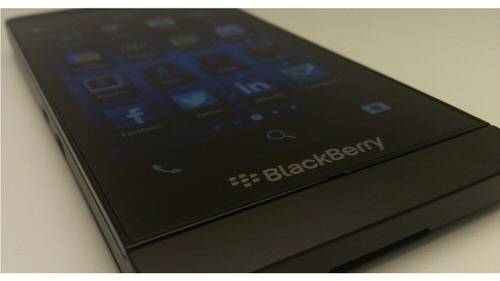
BlackBerry executives are used to bad news. Whether it’s losing contracts with large enterprises or watching the company’s stock price plummet, it has not been a pleasant couple of years for the company formerly known as Research In Motion.
One of the most consistent sources of good news to BlackBerry over the years has been the fact that the United States government remained addicted to BlackBerry smartphones and the security and reliability the platform provides.
Scary Report
So imagine the shock echoing through the halls of Blackberry headquarters in Waterloo, Ontario, Thursday morning when a report surfaced that the U.S. Department of Defense was dropping Blackberry 10 smartphones in favor of iOS devices. Specifically, the DoD was said be ordering hundreds of thousands of iOS devices from Apple. According to a report from gadget blog Electronista, the DoD was set to buy 120,000 iPads, 100,000 iPad Minis, 200,000 iPod Touches and a 210,000 iPhones. This could have been a big blow to one of BlackBerry’s last customer strongholds.
Good thing for BlackBerry that the report appears to be inaccurate and overblown.
According to a statement emailed to ReadWrite from a spokesperson at the public affairs office of the U.S. Secretary of Defense:
The department is aware of recent reporting that asserts it is ‘dropping’ BlackBerry. This reporting is in error. The department recently released its mobility strategy and supporting implementation plan, which clarifies we are moving towards a mobile management capability that supports a variety of devices, to include BlackBerry. As clarified in the recent release of our Commercial Mobile Device Implementation Plan, we are working towards establishing a multi-vendor environment in support of the DoD mobility strategy.
Going Multivendor
Essentially, the DoD is going multi-vendor. That will include iOS, Android, Windows Phone andBlackBerry. This is not a new development, as many government agencies have been looking to break free of the BlackBerry bank and go multi-vendor for several years. Still not great news for Blackberry, but pretty much par for the course.
Reports claiming the DoD was going straight iOS can be very, very damaging for BlackBerry. Even if the report is basically wrong, as the DoD spokesperson insists. Smartphone platforms succeed as much on public perception as they do on quality, marketing and advertising. BlackBerry reacted to the story by issuing a statement through its public relations agency attempting to dispel the rumor.
Our work with the U.S. Department of Defense is going well and the U.S. Department of Defense is moving forward with testing of BlackBerry Enterprise Service 10 and the new BlackBerry Z10 smartphone. We are currently working with the Defense Information Systems Agency (DISA) and anticipate Security Technical Implementation Guides (STIG) and Security Requirement Guide (SRG) approval for the BlackBerry Device Service, BlackBerry 10 and BlackBerry PlayBook by early April. BlackBerry was the first to go through the new SRG process by the Defense Department and will be the first to successfully come out of it.
Spin Control
This type of urgent spin control is unusual for BlackBerry. The company normally does not go out of its way to react to rumors. There have been dozens of instances in the past several years of large enterprises or government agencies “ditching BlackBerry” for the iPhone or Android and even Windows Phone. BlackBerry has not deigned to respond to the vast majority of those reports – true or not.
This one is different. Not only are we talking about the U.S. federal government, it is the Department of Defense, by far the largest of executive agencies. When it comes to IT at the federal level, many agencies follow the lead of the DoD. This is a story that BlackBerry needed to set straight before its other government partners decide they want to jump ship too.
The DoD spokesperson said that the agency is in the process of implementing a system that will support 100,000 multi-vendor devices by February 2014. The department said that it currently has 600,000 commercial devices in use, including 470,000 BlackBerries, 41,000 “Apple operating systems” (not specified between Mac OS X and iOS but presumably those are iPhones and iPads) and 8,700 Android operating systems.

















